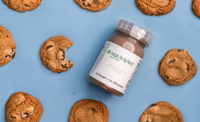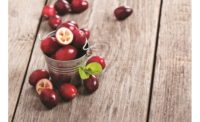Functional ingredients like dough conditioners are important components of any formulation to help improve the quality, texture and shelf life of snack and bakery products. And with consumers increasing demand for clean label, snack producers and bakers continue to look for new functional ingredients that deliver benefits without compromising flavor or shelf life.
Baking better bread
The Bellarise brand from Pak Group, Pasadena, CA, offers a portfolio of dough conditioners, yeast and baking solutions. Most recently, the company launched a series of new products to respond to the growing demand for clean label, non-GMO and organic products. The R&D team created several new organic dough conditioners and softeners called Bellarise BellaSOFT Organic 1500 Plus and Bellarise WP 1000 Organic Dough Conditioner.
“Bellarise Organic WP 1000 Dough Conditioner is specifically made for white pan breads. It produces more-consistent crumb structure that is also more resilient and allows organic and conventional breads to yield a whiter crumb that consumers find more appealing. Bellarise BellaSOFT Organic 1500 Plus works in both organic and conventional breads, and extends the shelf life of any bread. It also results in a bread that is much easier to slice,” according to Cam Suárez-Bitár, marketing and public relations manager.
The company also introduced Bellarise Supreme Instant Dry Yeast which is a potent, non-GMO, shelf-stable, high-activity yeast that is raised on beet molasses. This new ingredient has significant gassing power, which shortens proof times by up to 15 percent as it increases bread volume. It works best in lean dough formulations (with less than 6 percent sugar) such as baguettes, ciabatta, Italian rolls and other breads.
Corbion, Lenexa, KS, has introduced Verdad MP 100 a new, naturally derived preservative for fresh baked goods. Verdad MP 100 is a clean-label mold inhibitor that features a combination of vinegar and natural flavor ingredient solutions that match the mold-inhibiting functionality and neutral flavor or traditional synthetic solutions like calcium proprionate, notes Yanling Yin, director, R&D bakery applications. “The natural mold inhibitor gives bakers the shelf life and flavor they’re used to, while enabling them to deliver the simpler ingredient labels that today’s consumers want.” Verdad MP 100 was designed for use in fresh products, such as in-store bakery breads, buns and rolls.
The company also recently launched frozen dough conditioners under their Pristine line of products. “Our frozen dough conditioners provide resistance to freeze/thaw cycles and improve the dough recovery and proofing for yeast-raised, frozen bakery products like bread, buns, rolls, pizza dough, breadsticks and artisan applications. By extending product shelf life up to six months, our frozen dough conditioners also allow for faster processing and less waste,” explains Yin.
Expanding options
“Many bakery manufacturers seek knowledge around how enzymes can be utilized to provide functional solutions to many traditional/legacy ingredients,” says Joshua Zars, regional business director, food enzymes, DuPont Nutrition & Health, New Century, KS. “Not only are enzymes considered processing aids, they also can offer similar or better functional performance in baked goods.”
New DuPont options include POWERBake 6000, a range of enzymes that reduce the reliance on chemical emulsification and improve dough handling while delivering a fine, uniform crumb structure. Other benefits include dough strengthening through proofing and good oven spring. This new line pairs nicely with the POWERBake 7000 oxidation system, launched at the same time. “The benefit of having a dual-lever approach to strengthening and oxidation is that, while designed to work in synergy, bakers have the flexibility to fine-tune one component at a time when needed,” notes Zars.
The company has also introduced POWERFresh 9750 bakery enzyme, a dough softening enzyme designed to deliver improved softness and eating quality, better moistness and resilience, higher processing tolerance, and better stackability and sliceability.
Both of the products were initially developed for bread and buns, but now the company is looking to apply similar technology to breakfast baked goods, such as English muffins, bagels, and cake and yeast-raised doughnuts.
Brolite, Bartlett, IL, recently added several new functional products to its portfolio, notes Jeff Nelson, vice president, Western sales. PF Replacer will replace potato flour while maintaining the absorption, chewiness and functionality of potato flour. Also, its Cake Extender increases volume, tenderness and shelf life of chemically leavened sweet goods. Both systems are clean label and non-GMO and work best in flour- and corn-based products.
Multifunctional appeal
Consumers are looking for clean label, nutritional benefits and social responsibility for their ingredients and products, and Citri-Fi from Fiberstar, River Falls, WI, is a trifecta delivering all three attributes. Citri-Fi is a natural citrus fiber that improves freshness and texture, which ultimately improves the quality of the product over time. Citri-Fi is an example of an upcycled ingredient, produced from byproduct of the citrus juicing process, notes Jennifer Stephens, vice president of marketing. “Due to its patented clean and physical process, the citrus fiber is created to have high water-holding capacity and emulsification properties that makes the fiber more functional.” The products can be labeled as “citrus fiber,” “dried citrus pulp” or “citrus flour.”
This solution is ideal for gluten-free bakery products, suggests Kurt Villwock, Ph.D., director of R&D, Fiberstar. “Gluten-free baked goods suffer from dry texture and toughness. Citri-Fi helps bind the water to create a better texture over time, especially freeze/thaw conditions. Citri-Fi improves bakery products like breads, cakes, muffins, pastries, cookies and fruit fillings. This natural fiber can also be used in dry snacks to improve strength and reduce breakage without losing the tender bite.”
The company recently added Citri-Fi 150 to the portfolio, a non-GMO, allergen-free and gluten-free natural citrus fiber. Similar to the other products, Citri-Fi 150 provide water-holding capacity, which improves the freshness of baked goods over time. However, this new ingredient can be used at higher levels, contributing greater quantities of fiber to the finished product. All Citri-Fi products qualify as dietary fiber under the recently updated FDA ruling.







